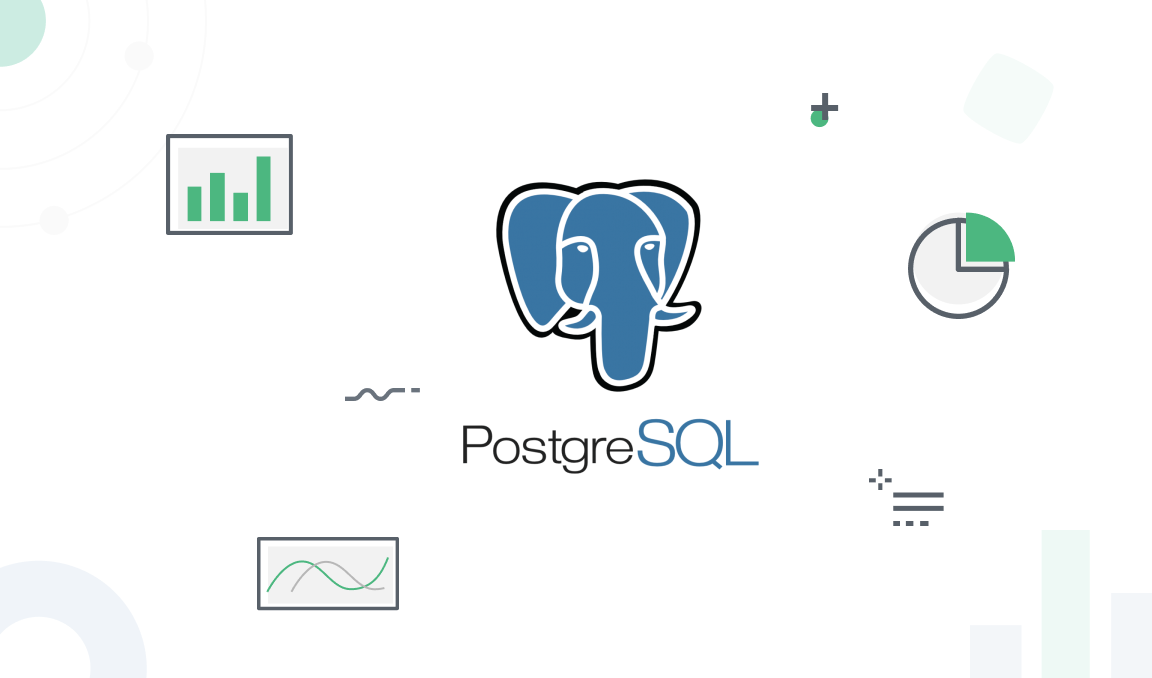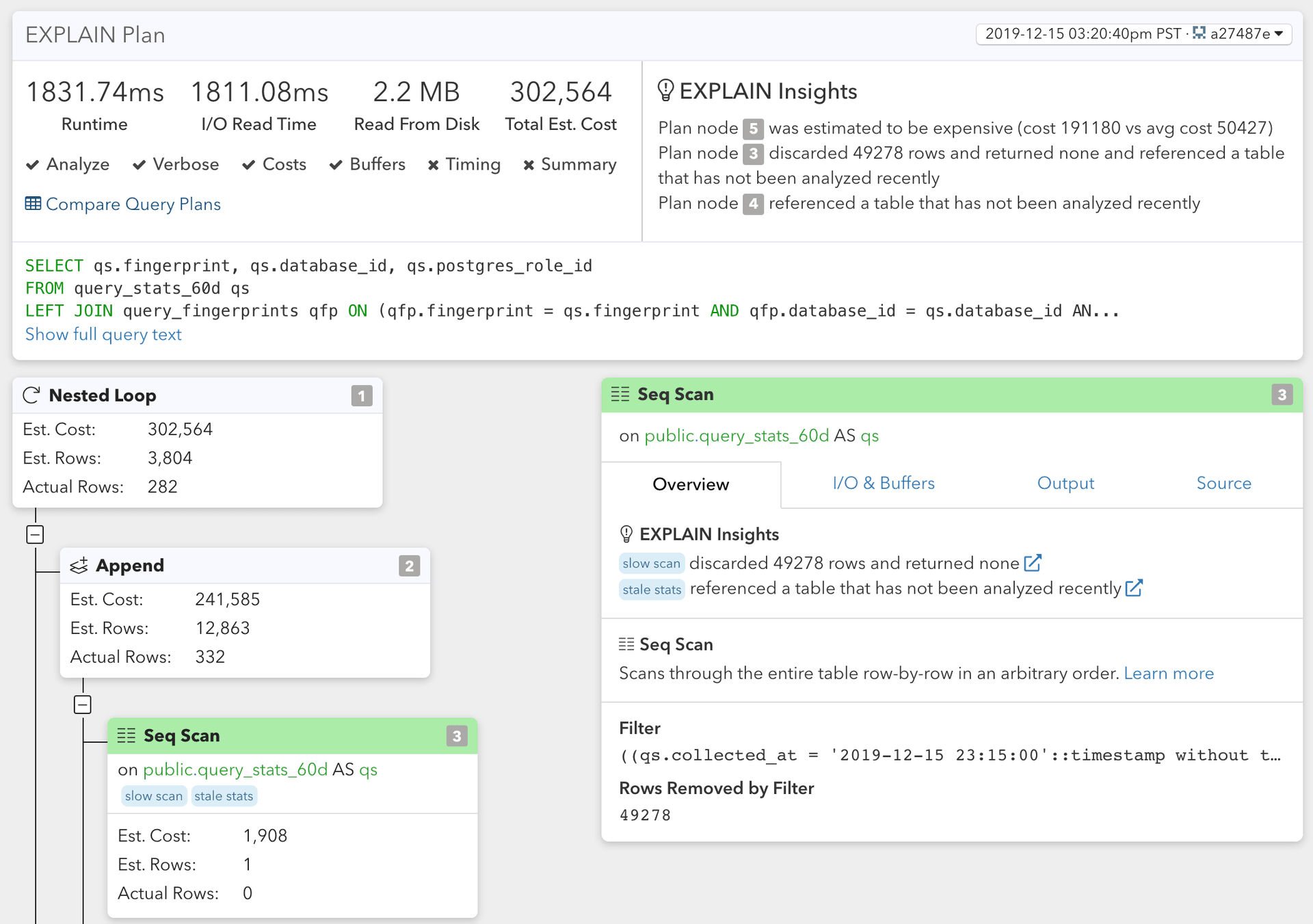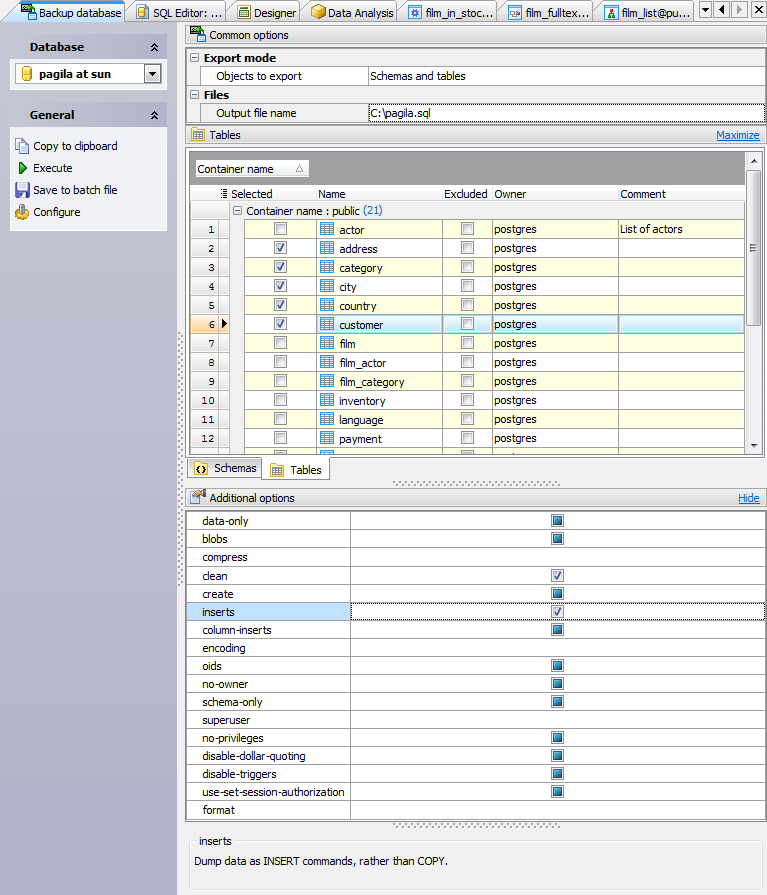
Supported values for virtual folders are functions.
TOOLS FOR POSTGRESQL ISO
vscode-postgres.intervalFormat: set to iso_8601 to format intervals according to the ISO 8601 standard, humanize to format as easy to read text, and succinct to format like a countdown clock.vscode-postgres.tableColumnSortOrder: set to db-order to sort columns like the database does, alpha to sort alphabetically, and reverse-alpha for descending alphabetically.tConnectionFromExplorer: set to ifunset to only set the query connection if not already set.vscode-postgres.prettyPrintJSONfields: set to true to enable nicely formatted JSON in the query results window.vscode-postgres.showExplorer: enable/disable the database explorer.This extension contributes the following settings: The results will be converted to the appropriate format and opened in a new editor of the selected type. You can choose from three formats: json, xml, and csv. If you have more than one table of results, you will be prompted for the table you wish to serialize. You can serialize your query results as well. If there is output from more than one query, multiple tables are shown in the results window. If there is a selection, that is run as the query, otherwise all the queries in the editor are run. Running queries in Postgres language files first check if anything is selected. You can also run a query from any other file type as long as a connection is selected and you have the query selected - F5 will not work for other file types. In Postgres language files you can run a query via F5, context menu, or command palette.

TOOLS FOR POSTGRESQL CODE
Windows with their language set to Postgres will get syntax highlighting, and when there is connection selected: code completion, signature information, and diagnostics. You can also initiate the change from the command palette. All windows start with no connection selected.Ĭlicking on the server ("localhost" above) or the database name will allow you to quickly change the database. Running QueriesĮach editor window can have a different database and/or connection used for its queries. The latter option will prompt you for the quantity first. They both open a new query with a "SELECT *" query started and run it. Tables have the extra option to "Select Top 1000" or "Select Top.". The "Refresh Items" option reloads the sub-nodes for that item, useful if there were structural changes to the database and you want the explorer to reflect them. You can remove connections from the connection context menu or the command palette command "PostgreSQL: Delete Connection".Įach item in the explorer has it's own context menu, and you can start a new query from any level (or the command palette "PostgreSQL: New Query"). You can add a PostgreSQL connection in the explorer or via the command palette command "PostgreSQL: Add Connection" Basic function signature support (connection aware).In-line error detection powered by EXPLAIN (one error per query in editor).Connection aware code completion (keywords, functions, tables, and fields).Quickly change connection database by clicking the DB in the status bar.Individual editors can have different connections.


List Servers/Database/Functions/Tables/Columns (primary key/type).Note: AWS RedShift is also not supported - there are information schema queries needed that just won't work there Features Note: PostgreSQL versions before 9.4 are not supported. It is possible there are some queries that won't run and report problems - even if they are completely valid ( DROP DATABASE comes to mind). All code completion keywords, functions, tables, and field names are pulled from the current connection to try to keep everything relevant. This facilitates query diagnostics, code completion, and function signatures. There is a language service that should keep at most a single connection open to the database (assuming one was selected). The explorer is a visual aid for helping to craft your queries. While there is a database explorer it is NOT meant for creating/dropping databases or tables. This is a query tool for PostgreSQL databases.


 0 kommentar(er)
0 kommentar(er)
